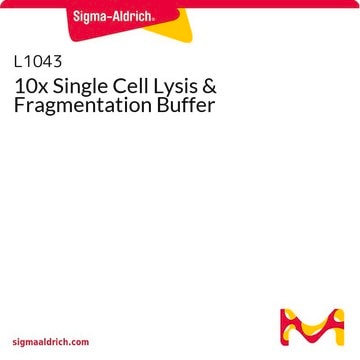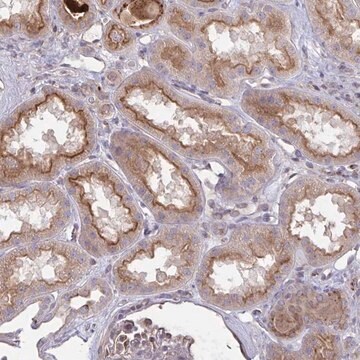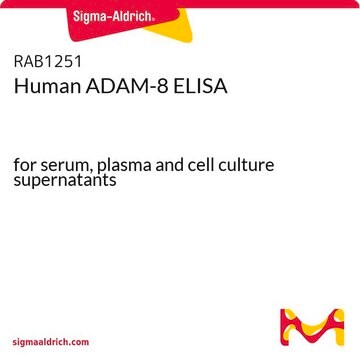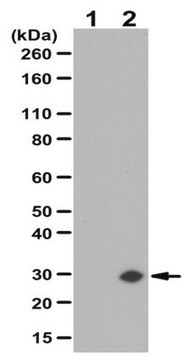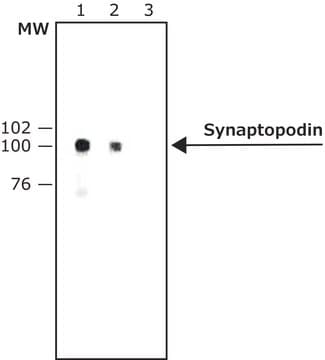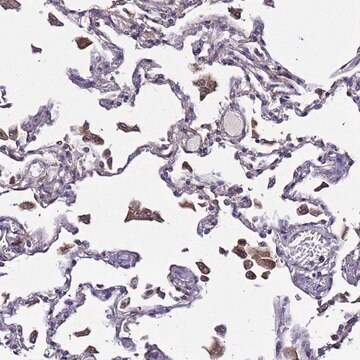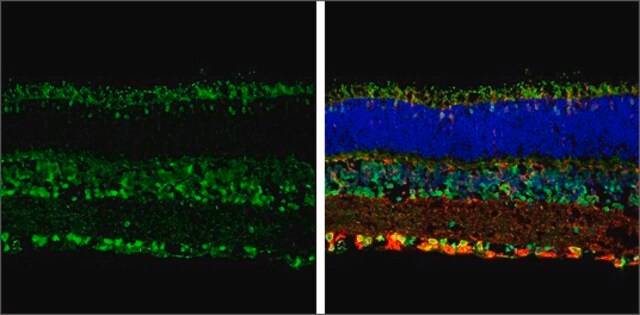HPA012582
Anti-AZGP1 antibody produced in rabbit

Prestige Antibodies® Powered by Atlas Antibodies, affinity isolated antibody, buffered aqueous glycerol solution
Sinonimo/i:
Anti-Zinc-alpha-2-glycoprotein precursor, Anti-Zn- alpha-2-GP, Anti-Zn-alpha-2-glycoprotein
About This Item
Prodotti consigliati
Origine biologica
rabbit
Coniugato
unconjugated
Forma dell’anticorpo
affinity isolated antibody
Tipo di anticorpo
primary antibodies
Clone
polyclonal
Nome Commerciale
Prestige Antibodies® Powered by Atlas Antibodies
Forma fisica
buffered aqueous glycerol solution
Reattività contro le specie
human
Convalida avanzata
orthogonal RNAseq
Learn more about Antibody Enhanced Validation
tecniche
immunoblotting: 0.04-0.4 μg/mL
immunohistochemistry: 1:200-1:500
Sequenza immunogenica
QDGRYSLTYIYTGLSKHVEDVPAFQALGSLNDLQFFRYNSKDRKSQPMGLWRQVEGMEDWKQDSQLQKAREDIFMETLKDIVEYYNDSNGSHVLQGRFGCEIENNRSSGAFWKYYYDGKDYI
N° accesso UniProt
applicazioni
research pathology
Condizioni di spedizione
wet ice
Temperatura di conservazione
−20°C
modifica post-traduzionali bersaglio
unmodified
Informazioni sul gene
human ... AZGP1(563)
Categorie correlate
Immunogeno
Applicazioni
Azioni biochim/fisiol
Caratteristiche e vantaggi
Every Prestige Antibody is tested in the following ways:
- IHC tissue array of 44 normal human tissues and 20 of the most common cancer type tissues.
- Protein array of 364 human recombinant protein fragments.
Linkage
Stato fisico
Note legali
Esclusione di responsabilità
Not finding the right product?
Try our Motore di ricerca dei prodotti.
Codice della classe di stoccaggio
10 - Combustible liquids
Classe di pericolosità dell'acqua (WGK)
WGK 1
Punto d’infiammabilità (°F)
Not applicable
Punto d’infiammabilità (°C)
Not applicable
Dispositivi di protezione individuale
Eyeshields, Gloves, multi-purpose combination respirator cartridge (US)
Certificati d'analisi (COA)
Cerca il Certificati d'analisi (COA) digitando il numero di lotto/batch corrispondente. I numeri di lotto o di batch sono stampati sull'etichetta dei prodotti dopo la parola ‘Lotto’ o ‘Batch’.
Possiedi già questo prodotto?
I documenti relativi ai prodotti acquistati recentemente sono disponibili nell’Archivio dei documenti.
Il team dei nostri ricercatori vanta grande esperienza in tutte le aree della ricerca quali Life Science, scienza dei materiali, sintesi chimica, cromatografia, discipline analitiche, ecc..
Contatta l'Assistenza Tecnica.
